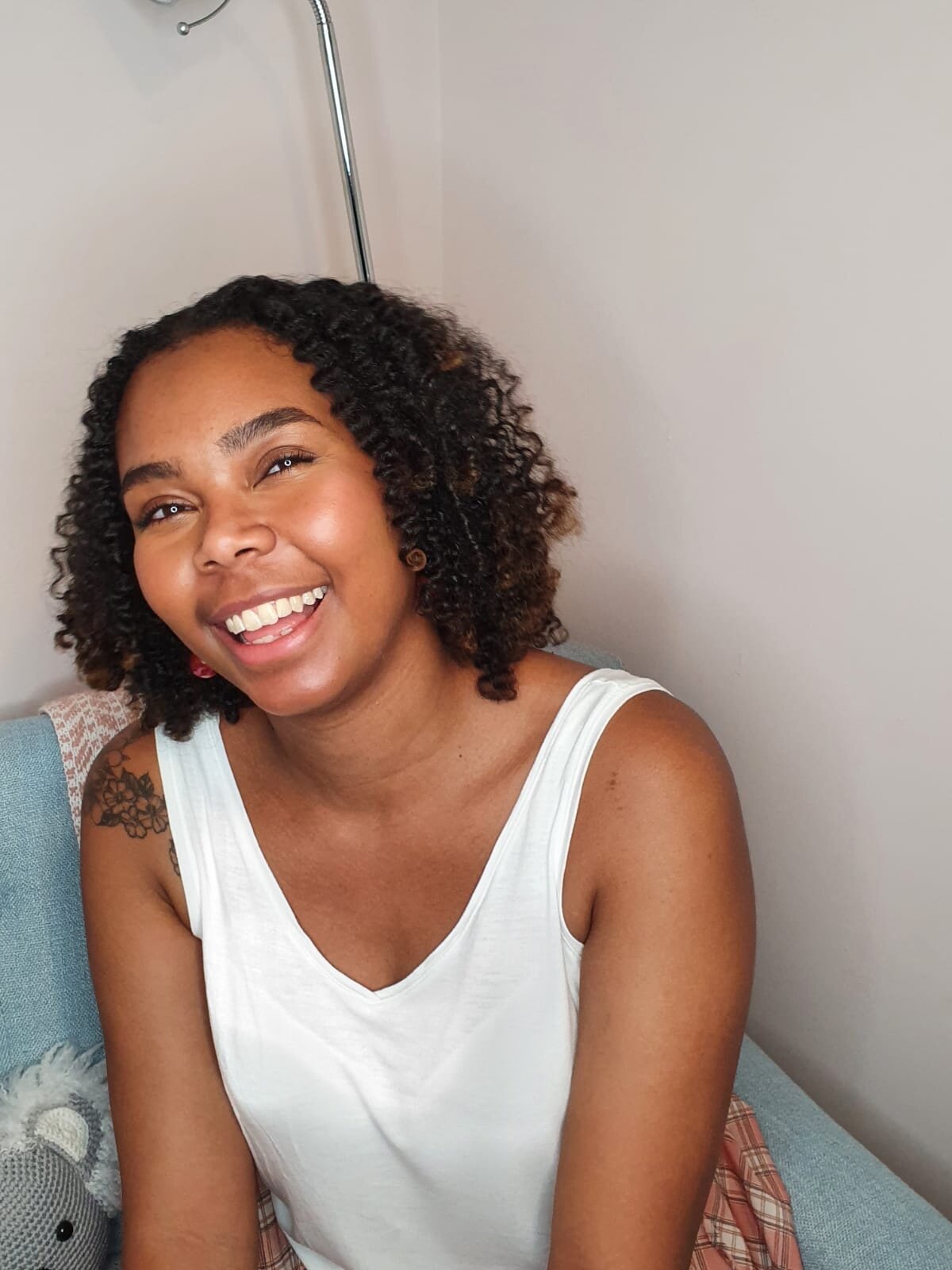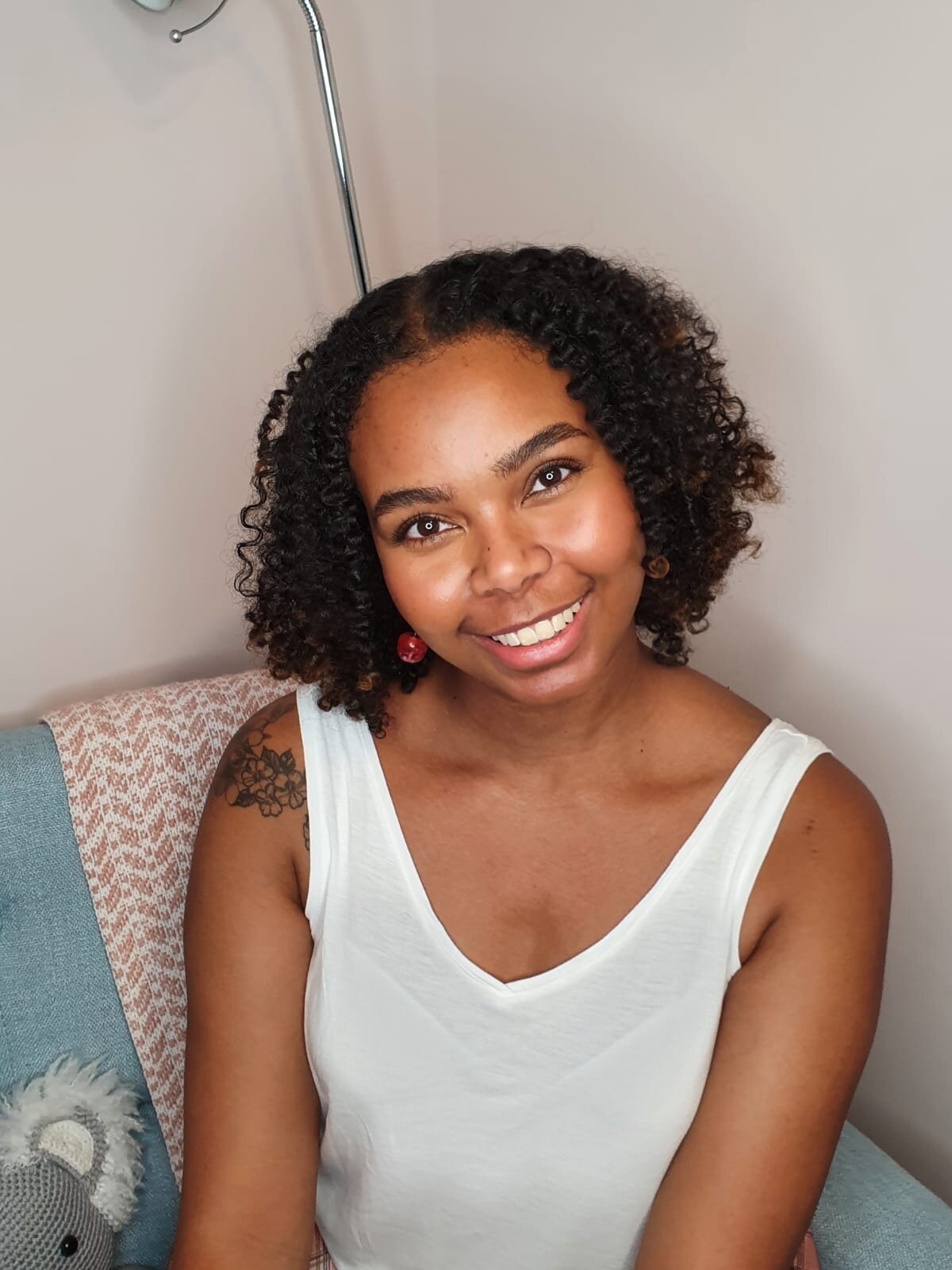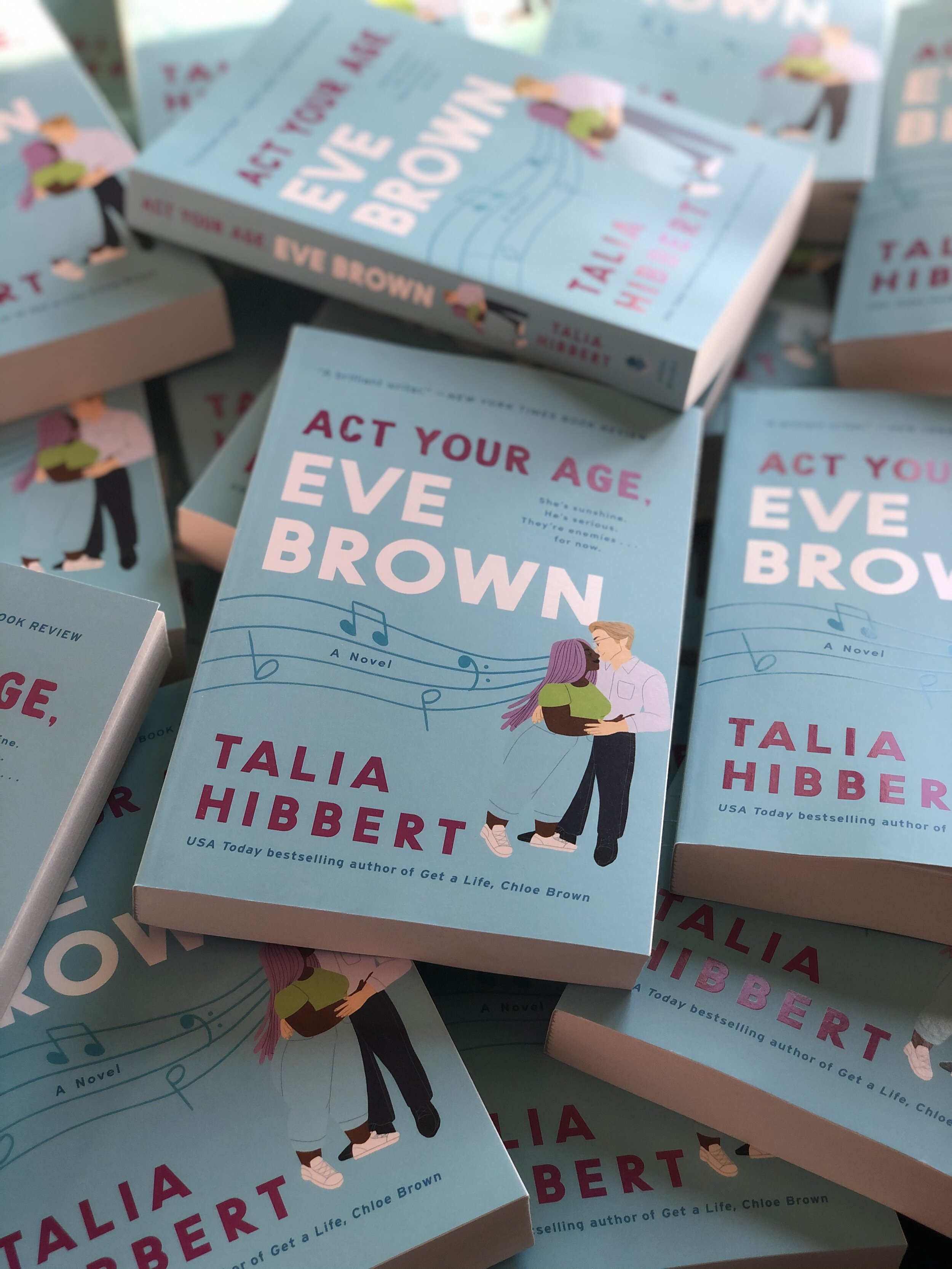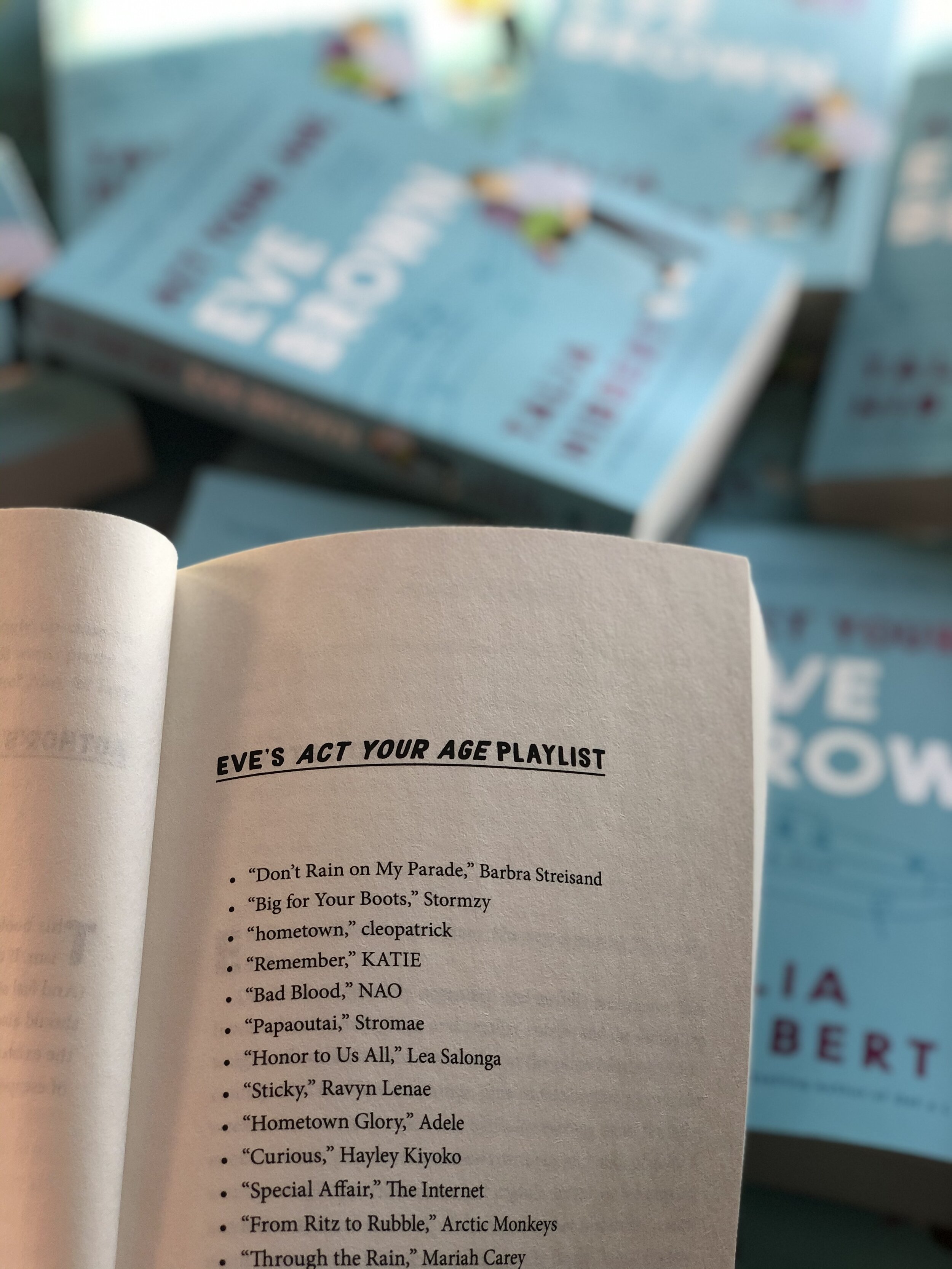Talia Hibbert: An Author Diversifying The Romance Genre On Their Own Terms
The first time Talia Hibbert ever wrote a story they were 10 years old. Since then, they found themselves channeling their creative ideas whenever they could, like at age 16, during work experience in a courtroom, or at age 18, during work shifts as a waitress.
Despite their undeniable passion for creative writing, adults around them weren’t always supportive of their aspirations of becoming a writer.
“When you say that you want to be a writer, all the adults around you say, ‘Oh, that's not going to happen,’ or, ‘You're not going to make any money and die, homeless and starving,’ and all those lovely things,” Talia says.
But Talia took the plunge, and, spoiler alert: it was worth it. They’ve published 17 romance novels since 2017; two of these were released during quarantine (Take a Hint, Dani Brown and Wrapped Up in You), and the latest, Act Your Age, Eve Brown, was published this year. The third novel in The Brown Sisters series, Act Your Age, Eve Brown follows Eve Brown, a “certified hot mess,” as she tries to land a chef’s position at Jacob Wayne’s bed and breakfast. Tensions are high, personality traits are clashing, and an enemies-to-lovers arc is the best one can hope for.
Talia Hibbert
While their novels are romantic, Talia points out that, due to romance’s “entirely emotional” quality, the genre can go hand in hand with other genres.
“I find myself reading mostly sci-fi or fantasy or otherwise speculative fiction, usually romance, but sometimes just straight sci-fi,” they share.
Talia has fostered great expectations (pun 100% intended) for love due to their avid reading of romance novels.
“I feel like I've always been really happy in the romantic side of my life,” they explain. “I genuinely think that is because of romance novels, because they created this space for me to see that it's totally okay to want or expect a really great relationship.”
Movies, TV shows, and novels can promote unrealistic expectations when it comes to relationships. The messages are often negative: take the good with the bad, love hurts, love is pain, love is sacrifice. Fortunately, Talia was able to absorb the healthy, positive lessons from the stories they were reading.
“I feel really lucky that I was able to have [the idea that whoever you're with should be really into you and really nice to you and you should be happy] kind of grounded into my brain from a young age,” they say. “It's definitely affected how I expect people to treat me.”
Just as romance can be woven into other forms of literature, so can one’s personal lives; most artists, whether they’re singer-songwriters or novelists, inevitably find themselves taking inspiration from their real-life relationships and implementing it into their songs or stories. For Talia, it’s a combination of both their lived experiences and vivid imagination.
“I've been with the same person since I was 18, and I've known him since I was 16,” they share. “[Within the novels] you can see how elements of the relationships were modeled on either our relationship or on him specifically. Because I think he's great.”
Talia’s book ‘Act Your Age, Eve Brown’
Talia’s experience with fibromyalgia—a chronic illness involving muscle pains as well as other symptoms—also became part of her novel Get A Life, Chloe Brown. Like Talia, Chloe Brown has fibromyalgia, and this affects her outlook on life, as well as her relationships with others. Talia found the process of writing Chloe’s character quite easy, seeing as they were writing their reality. It was trickier for them to write characters who didn’t have a chronic illness or joint pains, as many of their day-to-day habits differ from someone who doesn’t have fibromyalgia. “I kind of have to imagine what it's like for a character not to be limited like that,” Talia explains.
Growing up, something else Talia had to imagine was themselves within novels. They grew up in a predominantly white area and relied on the library for their romance novels. The characters within these novels were white, and it wasn’t until Talia had their own debit card and was able to purchase ebooks that they realized there was more diversity within the romance genre.
“People had already been taking steps to diversify the genre,” they say. “I think the first romance I ever read with a black heroine was by Rebekah Weatherspoon, and I was instantly addicted. From that point on, it was just searching for authors who were doing that kind of work.”
Talia markets their own work as “sexy, diverse romance,” and has undoubtedly contributed to diversifying the narratives available to readers throughout the world.
“I'm black, I'm disabled, I'm queer. I think it's important for me to be able to write stories that are natural to me,” Talia says.
Through their stories, Talia is proving that one doesn’t need to write about white characters in order to be a successful author. Growing up, the thought that they would have to limit themselves in this way in order to get published was “stifling and depressing,” not to mention that it did not reflect their reality. The decision to write characters and stories they, and millions of others, could relate to was thus a no-brainer.
“Art and literature have such a big impact on how we see ourselves and how we see others,” they explain. “For that reason, it's just so important that it always be diverse and open.”
Talia refuses to have their writing placed in a box by writing the same stories that filled their neighborhood libraries growing up, deciding to take matters into their own hands and self-publish the work they wanted to see.
“The main thing that got me down as a young writer was I was reading the books that were published. I knew what publishers wanted. I saw it every day, and it wasn't me,” Talia says.
Publishing independently is quite different from working with a publishing house. It requires discipline, as you create your own structure. In Talia’s case, this flexibility was convenient due to her health concerns. Publishing houses need to work further in advance, and every step of the process is monitored.
“You have your draft finished a year before the book is going to come out,” Talia explains, “whereas if I'm self-publishing something, I might just write it and then be like, okay, it's coming out tomorrow. I'd give it a month for some advertising, but also possibly not, depends on my mood.”
Despite the freedoms self-publishing allows, it’s just as much of a commitment; more freedom means more responsibilities.
While Talia recommends self-publishing for young writers, they also believe “you have to be prepared for your own small failures when you're self-publishing.”
Throughout the process of pursuing writing as a career, Talia has realized the traits they used to view as detrimental are actually their greatest assets; their way of interacting with the world around them is what has contributed to their success.
“Being an author has made me less afraid to be myself and the way I think,” Talia reflects. “I'm good at communicating through books. So when I am kind of sitting in the corner, watching what people are doing rather than taking part, I don't feel like I have to stop. I feel like this is just my very long-winded way of eventually communicating after the fact with imaginary people.”
The process of writing more than a dozen romance novels has given Talia confidence in their own ability to create a space for themselves within the world of literature, as well as proven (once again) that diverse and inclusive stories are welcome with open arms amongst readers.
“That's what I want young writers to know… you can make a career out of your passion,” Talia says. “People tend to act like that's not realistic, but does that mean that realism is being miserable in your career? Because if so, I invite us all to reject that.”
Although it’s hard to believe, we’re halfway through 2021. On a personal note, Talia is looking forward to being fully vaccinated in August. Career-wise, they’re currently writing their first young adult romance novel. “I'm really looking forward to the book coming out and having a new kind of reader and seeing what they think,” they say. “Especially because this will be the first book I've ever written that my nephew can read.”
The release date is yet to be announced, but you can keep up with Talia’s creative process and view her other novels on her website, where she provides readers with blog post updates, audiobooks, and even a recommended reading order for those interested.
STORY ANA SOFIA ERATH
PHOTOS TALIA HIBBERT



